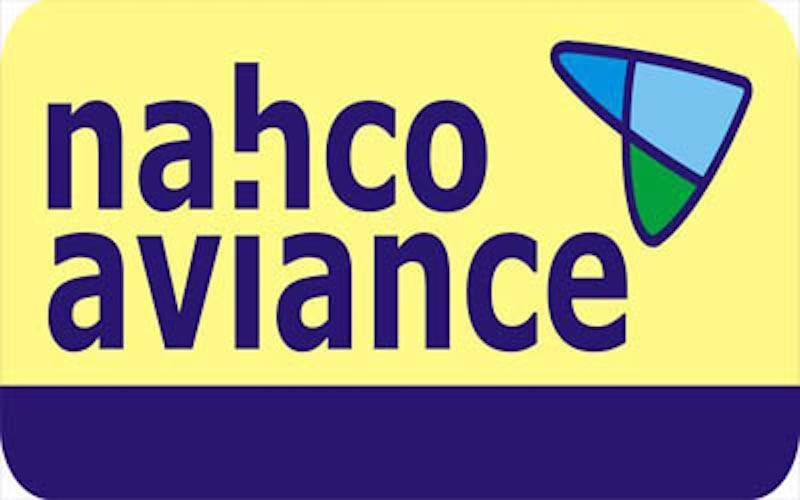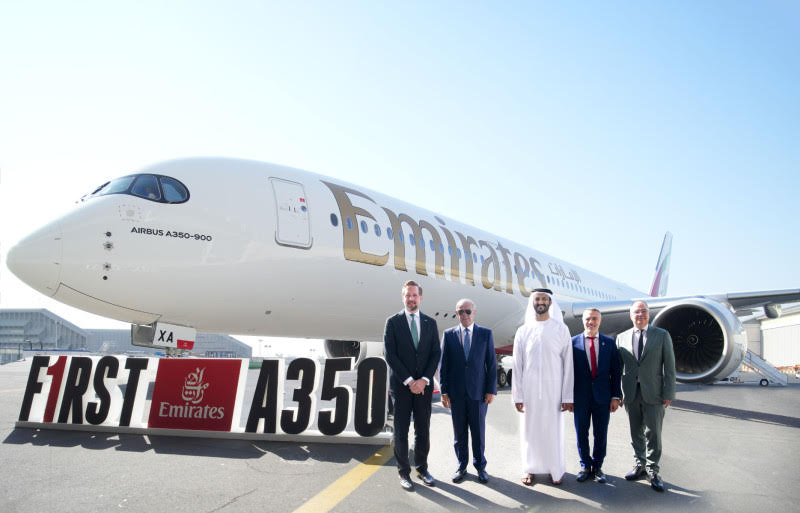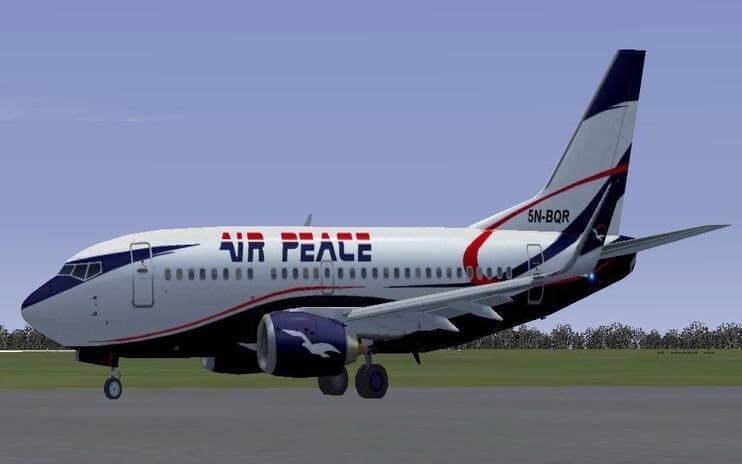Travel/Tourism
H1’20: NAHCO Suffers N143.2m Loss on Rising Selling, Admin Costs

By Dipo Olowookere
One of the main aircraft, cargo and passenger handling companies at the nation’s airports, the Nigerian Aviation Handling Company (NAHCO) Plc, suffered a N143.2 million loss in the first half of 2020.
This was against the net profit of N467.3 million the firm declared in the corresponding period of last year.
This loss was mainly impacted by the COVID-19 pandemic, which wrecked the aviation industry worldwide especially in the second quarter of the year.
Business Post observed that NAHCO recorded a loss in the period under review despite receiving a tax credit of N36.8 million.
In the period, it had a loss before tax of N180.0 million versus the profit before tax of N580.0 million in the first six months of 2019, while its earnings per share (EPS) closed at -9 kobo in contrast to 28 kobo in H1’19.
A look at the top line of the financial statements for the period ended June 30, 2020, showed that the revenue generated declined to N3.6 billion from N4.8 billion due to a decline in the passenger/aircraft handling to N1.4 billion from N2.6 billion and reduction in the leasing to N78.9 million from N123.8 million.
However, there was an improvement in the revenue generated from cargo handling to N2.0 billion from N1.9 billion.
According to the results, the operating costs were pruned to N2.7 billion from N3.2 billion majorly from payroll costs, concession, diesel, electricity and spares as well as licence renewal and at the close of business on June 30, 2020, the company’s gross profit went down to N931.9 million from N1.6 billion.
With an almost flat other income of N105.9 million and higher selling and administrative expenses of N1.3 billion versus N1.1 billion in H1 2019, NAHCO was left with a loss from operations of N282.8 million in contrast to a profit of N591.7 million a year earlier.
The increase in the selling and administrative costs was caused by the higher directors’ remuneration, laundry & cleaning, repair & maintenance, board expenses, entertainment, medical costs, audit fee, depreciation/amortization and others.
Furthermore, the company said it grew its finance income to N146.7 million from N86.5 million, while the finance costs dropped to N43.8 million from N73.6 million.
On its balance sheet, the total assets reduced to N14.6 billion from N14.7 billion in FY 2019, while the total liabilities were flat year-to-date at N8.1 billion.
In the period under review, the loans and borrowings reduced year-to-date to N229.7 million from N440.1 million, while the retained earnings dropped to N3.9 billion from N4.0 billion in FY’19.
Travel/Tourism
Emirates Unveils Airbus A350-900 in Dubai

By Aduragbemi Omiyale
One of the leading airline operators, Emirates Airline, has officially unveiled its first Airbus A350-900 at an exclusive event showcase in Dubai attended by aerospace partners, government officials and dignitaries, members of the media, as well as aviation enthusiasts.
The Emirates A350 features three spacious cabin classes, accommodating 312 passengers in 32 next-generation Business Class lie-flat seats, 21 Premium Economy seats and 259 generously pitched Economy Class seats.
The latest onboard products reflect the airline’s commitment to delivering a premium passenger experience while optimising operational efficiency. The Emirates A350 is the first new aircraft type to join Emirates’ fleet since 2008.
Apart from its newly delivered A350, Emirates operates two other aircraft types around the world to 140 destinations – the widebody Boeing 777 aircraft and the iconic ‘double decker’ Airbus A380 aircraft.
The A350’s introduction will enable Emirates to expand into new destinations globally, including mid-sized airports unsuited for larger aircraft. The Emirates A350 will be delivered in two versions – one for regional routes and one for ultra long-haul routes.
The Emirates A350 takes technology to another level. Customers can now adjust their electric window blinds at the touch of a button.
The aerBlade dual blind system will feature in Business and Premium Economy Class offering two shaded options, and the aerBlade single blind systems will make a debut in Economy Class, with all blinds showing the Emirates Ghaf tree motif when closed.
Business Class on the Emirates A350 will feature 32 luxurious leather ‘S Lounge seats’, inspired by the Mercedes S Class for an exceptional travel experience. The A350 aircraft will feature brand new additions of wireless charging on the side cocktail table in Business Class, and in-seat lighting controls with 5 streams of light. The 1-2-1 seat configuration in the A350 Business Class ensures a very private, exclusive experience.
Speaking at the event, the chairman of Emirates Airline, Mr Ahmed bin Saeed Al Maktoum, said, “Today is an exciting milestone for Emirates as we showcase our first A350 and usher in a new era for our fleet and network growth.
“This aircraft sets the stage for Emirates to spread its wings farther by offering added range, efficiency and flexibility to our network, enabling us to meet customer demand in new markets and unlock new opportunities in the cities that we serve.
“Onboard, our updated interiors and seating configurations will help us deliver a more elevated and comfortable experience to travellers across every cabin class.
“The 65 Emirates A350s joining our fleet in the coming years fit into the airline’s broader plans to support our visionary leadership’s Dubai’s D33 Strategy, which will transform the city into a pivotal hub in the global economy by expanding its connectivity and reach.”
Travel/Tourism
Air Peace Employees Undergo Training at Boeing Global Learning Institute

By Aduragbemi Omiyale
Some employees of Air Peace have upgraded their aviation safety skills at a training course organised by Boeing through the Boeing Global Learning Institute (BGLI) in collaboration with Cranfield University, United Kingdom as part of a shared commitment to shaping the future of aviation leadership.
Over the years, Air Peace has recognized that a deep, unwavering commitment to safety is key to its continued success.
The programme is aimed at building upon that vision, enabling executives to lead with confidence, manage risks effectively, and create high-performing teams that prioritize safety at every level.
In the five-day in-person training, all the executives and others in the various departments of Air Peace were taught advanced safety leadership skills and gained practical tools to implement the new knowledge.
The Head of Aerospace at Cranfield University, Prof Graham Braithwaite, said, “This collaboration ensured that the training directly addresses the challenges Air Peace faces, culminating in real-world capstone projects that would have a lasting impact.”
Reinforcing this position, the Lecturer for Organisational Resilience and Change at Cranfield School of Management, Fabian Steinmann, who was excited at the great progress Air Peace made over the years, said that they are happy to learn and share knowledge and find ways to strengthen the system, making it robust and flexible to adapt to the ever-changing environment.
“Safety is at the heart of everything we do at Cranfield so the privilege we have is that we travelled around the world, picked up the good practices, learned more about the culture and the operation in various countries so we’re here to facilitate that exchange with Nigeria and Air Peace to see how we share some of the good practices and lessons learned from all around the world and translate them into their operation.”
Also, the Senior Organisational Consultant and Programme Manager at Boeing Global Learning Institute, Harry Magui, said, “The Boeing company has long recognised the importance of supporting continuous learning of our aviation partners.
“To that end, the Boeing Global Learning Institute designs and delivers numerous learning programmes to both emerging and established leaders of our partners.
“These efforts aim to develop leadership, business, and technical skills so that our partners can improve their business processes, increase operational efficiency and enable leaders to strengthen their teams to ultimately grow their business.’
Alluding to the great work Air Peace has done in making safety a pre-condition rather than just a priority, Magui said, “We’re here to partner with our great partner, Air Peace who have been phenomenal in advancing the Aviation Industry in Nigeria, so we are here to support them to harness more opportunities in the future with the Advanced Leadership in Safety Excellence Training for all its top leadership within the organization.”
The Safety Manager at Air Peace, Captain Godfrey Ogbogu, said, “This class is quite essential and we’re lucky to have our resource persons impact knowledge on us. It is a well-structured training, especially for Air Peace because of where we are now and where we hope to go in the future.
“The whole essence of this class is to reinforce what we know before and be exposed to other avenues of learning. The aviation industry is ever-changing and dynamic, and Air Peace has to be abreast of such developments.”
Travel/Tourism
Emirates Expects Strong Customer Demand as Half-Year Profit Hits $2.5bn

By Aduragbemi Omiyale
In the first six months of the 2024-25 financial year of Emirates Group, a net profit of AED 9.3 billion ($2.5 billion) was recorded, with the pre-tax profit growing to AED 10.4 billion ($ 2.8 billion).
Also, the revenue went up by 5 per cent to AED 70.8 billion ($19.3 billion) from the AED 67.3 billion ($18.3 billion) recorded in the same period of last year, reflecting the consistently strong customer demand across business divisions, and across regions.
“We expect customer demand to remain strong for the rest of 2024-25, and we look forward to increasing our capacity to grow revenues as new aircraft join the Emirates fleet and new facilities come online at dnata. The outlook is positive, but we don’t intend to rest on our laurels.
“We will stay agile in deploying our capacity and resources in a dynamic marketplace,” the chief executive of the organisation, Mr Ahmed bin Saeed Al Maktoum, stated.
“The Group has surpassed its record performance of last year to deliver a fantastic result for the first half of 2024-25. This again illustrates the power of our proven business model working in combination with Dubai’s growth trajectory as a city of choice to live, work, visit, connect through, and do business in,” he added.
It was observed that apart from demonstrating strong operating profitability, Emirates maintained a robust EBITDA of AED 20.4 billion ($5.6 billion), slightly lower than AED 20.6 billion ($5.6 billion) last year.
The firm posted a solid cash position of AED 43.7 billion ($11.9 billion) as of September 30, 2024, compared with the AED 47.1 billion ($12.8 billion) achieved on March 31, 2024.
Emirates has been able to tap on its own strong cash reserves to support business needs, including payments for new freighter aircraft orders and other debt payments, also paying AED 2 billion in dividends to its owner, as declared at the end of its 2023-24 financial year.
“The group’s strong profitability enables us to make the investments necessary for our continued success. We’re investing billions of dollars to bring new products and services to the market for our customers; to implement advanced technologies and other innovation projects to drive growth; and to look after our employees who work hard every day to ensure our customers’ safety and satisfaction,” the chief executive stated.
Emirates continued to enhance its network and increase connectivity options through its Dubai hub. During the first half of 2024-25, Emirates increased scheduled flights to 8 cities: Amsterdam, Cebu, Clark, Luanda, Lyon, Madrid, Manila and Singapore.
In May, Emirates restarted daily services to Phnom Penh in Cambodia via Singapore. In June, it launched daily services to Bogotá via Miami, expanding the airline’s South American presence to Colombia. In September, Emirates opened a new route to Madagascar via the Seychelles – taking its passenger and cargo network to 148 airports in 80 countries by September 30.
Expanding connectivity options for customers, during the first six months of 2024-25, Emirates entered into new agreements with 7 codeshare, interline, and intermodal partners: AirPeace, Avianca, BLADE, ITA Airways, Iceland Air, SNCF Railway, and Viva Aerobus.
-

 Feature/OPED5 years ago
Feature/OPED5 years agoDavos was Different this year
-
Travel/Tourism8 years ago
Lagos Seals Western Lodge Hotel In Ikorodu
-

 Showbiz2 years ago
Showbiz2 years agoEstranged Lover Releases Videos of Empress Njamah Bathing
-

 Banking6 years ago
Banking6 years agoSort Codes of GTBank Branches in Nigeria
-

 Economy2 years ago
Economy2 years agoSubsidy Removal: CNG at N130 Per Litre Cheaper Than Petrol—IPMAN
-

 Banking2 years ago
Banking2 years agoFirst Bank Announces Planned Downtime
-

 Sports2 years ago
Sports2 years agoHighest Paid Nigerian Footballer – How Much Do Nigerian Footballers Earn
-

 Technology4 years ago
Technology4 years agoHow To Link Your MTN, Airtel, Glo, 9mobile Lines to NIN












